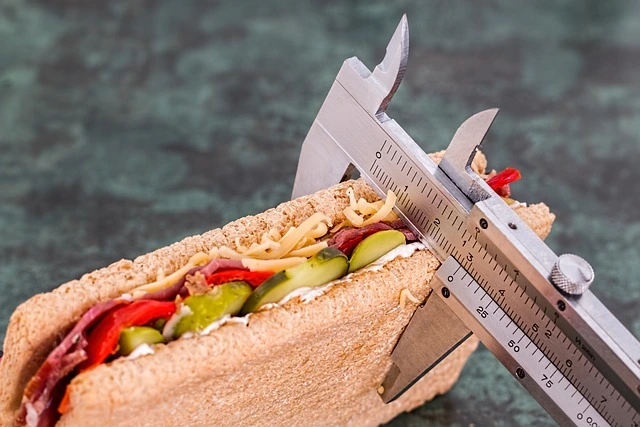Embarking on a weight loss journey is no easy feat. With so many diets, programs, and advice out there, it can be easy to get lost and make mistakes along the way. While there is no one-size-fits-all approach to weight loss, some common pitfalls can derail even the most committed individuals. Let’s explore the most common mistakes people make when trying to lose weight—and how you can avoid them.
1. Focusing Too much on the Scale

It’s tempting to judge your progress based solely on the number on the scale. However, weight is just one indicator of progress. Many people make the mistake of obsessing over the scale, but it doesn’t reflect other important factors like muscle mass, water retention, or overall health
The truth is, the scale doesn’t tell the full story. You may be losing fat and gaining muscle at the same time, which could cause your weight to stay the same or even increase. This is especially true if you’re incorporating strength training into your routine, as muscle weighs more than fatt
How to Avoid This mistake
- Track other metrics: Measure your waist, hips, and other body parts, or take progress photos to get a more accurate picture of your transformation.
- Focus on how you feel: Notice improvements in energy, mood, and strength rather than obsessing over the scale.
- Use the scale as a tool: Rather than as a primary measure of progress, use it to track long-term trends rather than daily fluctuations.
2. Following extreme diets

It’s not uncommon for people to jump into extreme diets in an attempt to lose weight quickly. Whether it’s cutting out entire food groups or following an ultra-low-calorie plan, these types of diets may result in initial weight loss, but they are rarely sustainable in the long term
Extreme diets often lead to nutrient deficiencies, low energy, and even hormonal imbalances. Additionally, they can trigger cravings, making it harder to maintain healthy eating habits over tim
How to Avoid This Mistake
- Choose a balanced approach: Rather than going for extreme diets, focus on incorporating whole, nutrient-dense foods into your meals.
- Gradual changes: Make small, sustainable changes to your eating habits over time, such as reducing processed foods or adding more vegetables to your meals.
- Avoid food guilt: Allow yourself to enjoy all foods in moderation. Restrictive diets often lead to binge eating and feelings of deprivation.
3. Neglecting strength training

While cardio is often emphasized when it comes to weight loss, strength training is just as important—if not more so. Many people make the mistake of relying solely on cardio for fat loss and neglecting to build muscle
Strength training helps build lean muscle mass, which increases your metabolism and helps you burn more calories at rest. additionally, muscle helps to shape and tone your body, giving you a leaner appearance
How to Avoid This Mistak
- Incorporate strength training: Aim for at least two to three strength training sessions per week. You can use free weights, resistance bands, or bodyweight exercises.
- Combine cardio and strength training: Instead of choosing one over the other, combine both forms of exercise to get the best of both worlds.
- Start with basic movements: Squats, lunges, and push-ups are excellent for building muscle and improving overall strength.
4. Skipping Meals or undereating

Many people make the mistake of skipping meals or drastically reducing their calorie intake in an effort to lose weight faster. While it may seem like skipping meals will help you consume fewer calories, it can actually have the opposite effect.
When you skip meals, your body enters starvation mode, which slows down your metabolism and increases cravings for unhealthy foods. Undereating can also lead to muscle loss, nutritional deficiencies, and fatigue.
How to Avoid This Mistake
- Eat balanced meals: Aim to eat regular meals that include protein healthy fats, and fiber-rich carbohydrates. This will help keep you full and satisfied
- Don’t skip breakfast: Starting your day with a nutritious breakfast helps jumpstart your metabolism and provides the energy you need to stay active.
- Snack smart: If you’re hungry between meals, opt for healthy snacks like nuts, fruits, or yogurt to keep your energy up and avoid overeating later.
5. Not getting Enough sleep

Sleep plays a critical role in weight loss, yet it is often overlooked. When you don’t get enough sleep, it disrupts your hunger hormones, making you more likely to overeat or crave unhealthy foods. Lack of sleep can also lead to higher levels of cortisol (the stress hormone), which is linked to fat storage, particularly around the belly area
Inadequate rest can also decrease your energy levels, making it harder to stay active and maintain a regular exercise routine.
How to Avoid This Mistake
- Aim for 7-9 hours of sleep: Prioritize getting enough rest each night to help regulate hunger hormones and boost your metabolism
- Establish a sleep routine: Create a calming pre-bedtime routine, such as reading or meditating, to signal to your body that it’s time to wind down.
- Avoid screens before bed: Limit screen time at least 30 min before going to sleep as the blue light emitted from devices can interfere with your body’s natural sleep cycle.
6. Overlooking the importance of hydration

Drinking enough water is crucial for weight loss, but many people make the mistake of neglecting hydration. Water is essential for digestion, metabolism and overall health. When you’re dehydrated, your body can mistake thirst for hunger, leading to overeating or unnecessary snacking
Moreover, staying hydrated helps reduce bloating and improve energy levels, both of which are beneficial when you’re trying to lose weight
How to Avoid This Mistake
- Drink water throughout the day: Aim for at least 8 cups (about 2 liters) of water daily, or more if you’re physically active.
- Start your day with water: Drink a glass of water as soon as you wake up to rehydrate and kickstart your metabolism.
- Limit sugary drinks: Opt for water, herbal teas, or sparkling water instead of soda or sugary beverages, which add unnecessary calories.
7. Setting Unrealistic goals

Setting goals that are too ambitious or unrealistic is one of the most common weight loss mistakes. While it’s great to have high expectations, setting unattainable goals can lead to disappointment and frustration. Many people give up because they feel like they haven’t achieved enough even if they’ve made significant progress.
How to Avoid This Mistake
- Set achievable, measurable goals: Focus on small milestones, like losing 1-2 pounds per week or increasing your workout intensity.
- Celebrate non-scale victories: Pay attention to other signs of progress, like improved energy, better sleep, or changes in how your clothes fit.
- Be patient with yourself: Remember that weight loss is a journey, not a race. Sustainable progress takes time.
Conclusion
Avoiding common weight loss mistakes is crucial for long-term success. By focusing on balanced eating, incorporating strength training, staying hydrated, and prioritizing sleep, you’ll be on your way to achieving your weight loss goals. Instead of rushing the process, aim for gradual, sustainable changes that support your overall health.
If you’re looking for more tips on effective weight loss methods, be sure to read our article on How Detoxing Supports Weight Loss.


